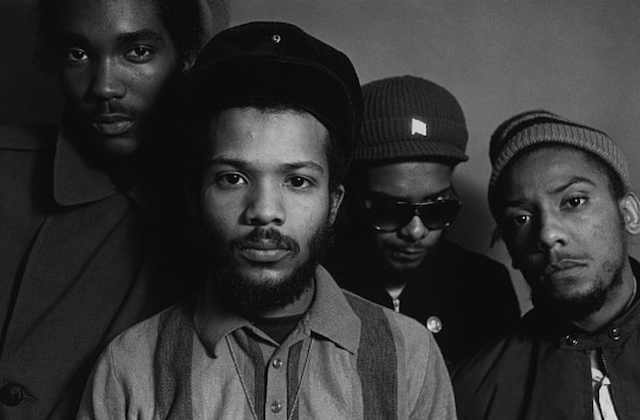Decades of appropriation threaten to erase the fact that Black artists created rock n’ roll and still make music within its subgenres. AJ+ explores these musicians’ contributions to one particular style in "The Very Black History of Punk Music," a short documentary posted yesterday (February 25).
The video explores the overlooked legacy of all-Black bands like Death and Bad Brains, both of whom it cites as influential to the sound and aesthetics of punk rock during the ’70s and ’80s.
The story of Death stands out because the Detroit trio made loud and fast rock music with politically charged lyrics—all hallmarks of the genre—before the term "punk rock" existed to describe them. The band struggled to find an audience during its ’70s heyday, and its music circulated underground for decades without public credit. A 2009 release of old material, "… For the World to See," and a 2012 documentary about their struggles and retrospective acclaim, "A Band Called Death," finally exposed how their music set the stage for punk. Veteran music journalist Greg Tate told AJ+ that this obscurity stemmed from how the industry boxed Black musicians out of rock music:
The American music business is made up of gatekeepers on the corporate and radio side. They very much subscribed to the Jim Crow notions of racial separation and segregation, which defined American culture throughout most of the 20th century. Black artists, historically, couldn’t make as much money playing their own music. [They] didn’t have access to the same audiences or opportunities.
The documentary also discusses how bands like Bad Brains mixed punk rock with reggae, another style of music concerned with resistance and liberation. Tate traces this cross-cultural exchange to the United Kingdom, where he says that Black and Brown punks played an obvious role in the culture’s multiracial development:
Under the [Margaret] Thatcher government, there was a lot of disenfranchisement of White working-class youth who were non- or anti-racist. They found their voice and militancy through the political actions and music of their Black and South Asian classmates and neighbors.
The video also explores the present state of punk, where movements like Afropunk and The Universe is Lit work to empower and celebrate artists and fans of color. "I think it’s important to see people who look like you making music and art," The Universe is Lit organizer Shawna Shawnté told AJ+. "We have been pushed to the margins, but we create in those margins, and it doesn’t get more punk than that."
